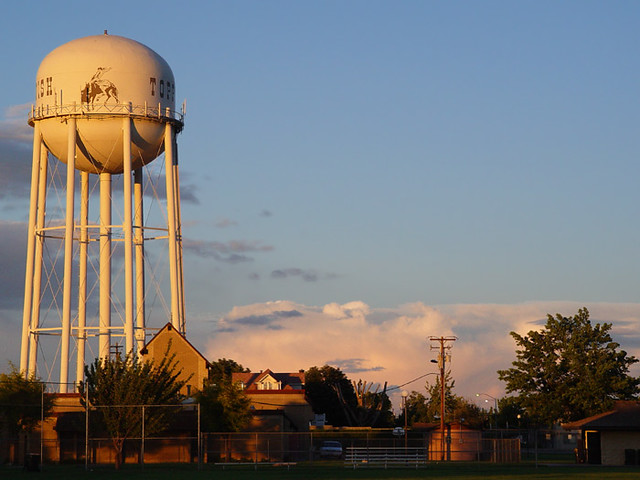
Yakama Nation, city of Toppenish in court battle over warming center
Listen
(Runtime 0:59)
Read
A court battle is heating up over a warming shelter in Central Washington. The Yakama Nation is running a 24-hour shelter for people who are homeless. The city of Toppenish wants to limit how often the shelter is open.
The Yakama Nation sued the city of Toppenish to be able to operate the Iniitnu’t Cold Winter Shelter for 24 hours a day, seven days a week. A judge with the U.S. District Court for the Eastern District of Washington granted a temporary restraining order, allowing the shelter to continue its 24-hour schedule through Wednesday.
That’s when a hearing is set to decide the shelter’s hours.
“The need is very much there,” said Jaydin Howe, the shelter’s manager. “We have well over 300 of our unhoused relatives out there on the streets, and the number only keeps growing.”
While the shelter is run by the tribe, nontribal members stay at the shelter as well, Howe said. So far this season, he said at least 115 people have taken advantage of the shelter’s services, often housing 20 or 30 people a night and others during the day.
“No matter what time of the day is, no matter what time of the night, they have somewhere to go at least to, if not stay, then to get warm or get a meal, something that is kind of hard for them to come by,” Howe said.
This isn’t the tribe’s first go at a 24-hour shelter. Last year, the Yakama Nation opened up a 24-hour warming shelter at its old police station and detention center. Since then, there’s been some plumbing issues. That building is now condemned.
So, the Yakama Nation began looking for a new spot to provide warm meals and beds for people this winter. A building owned by the Yakima Valley Farmworkers Clinic had previously been used as a 24-hour shelter by a religious organization. It’s located on the reservation in Toppenish.
In a Nov. 12 letter to the city, Yakama Nation Chairman Gerald Lewis wrote, “With dangerous temperatures expected this week, we are out of time and must open the Iniitnu’t Cold weather Shelter for our collective community. … We would prefer to be partners in this effort.”
However, City Manager Dan Ford responded in a Nov. 18 letter that the building had “deficiencies.” Court documents show that included a lack of fire sprinklers and alarms.
The city didn’t want to be held liable for any injuries that might occur, according to Ford’s letter.
“If the building’s health and safety deficiencies were corrected, we would be dealing with a much easier set of problems to solve,” Ford wrote.
However, the tribe said it installed alarms and fire extinguishers in each room, as well as emergency exit maps near the fire extinguishers.
The building had previously been operated as a 24-hour shelter by the Sunrise Outreach Center of Yakima. In 2022, shelter managers didn’t enforce rules, which resulted in overdoses and assaults, according to court documents.
State laws “allow for religious organizations to use a building for a winter weather shelter, but they would still need to comply with health and safety codes of the International Building Code, International Property Maintenance Code and International Fire Code,” Timothy Smith, the Toppenish fire chief, wrote in court documents.
The city of Toppenish didn’t respond to interview requests.
The tribe has also argued that as a sovereign, federally recognized tribe, the city of Toppenish doesn’t have authority on reservation land. This threatens the political integrity, health and safety of the Yakama Nation, according to court documents.
For Howe, the timing changes for the shelter have confused employees and the people who need its services.
“ It’s kind of hard for our relatives on the street to build that trust if we can’t stay open and we can’t stay consistent,” Howe said.
When the shelter was only open for six hours a day, he said they would have to kick people out.
“ We would drive around saying, ‘Hey, we’re open for six hours, and they’d get nice, comfortable, warm and sleep,” Howe said. “Then by the time the six hours are up, we had to wake them up and say, ‘Hey, no, you got to go. Sorry.’ That was one of the hardest things.”















